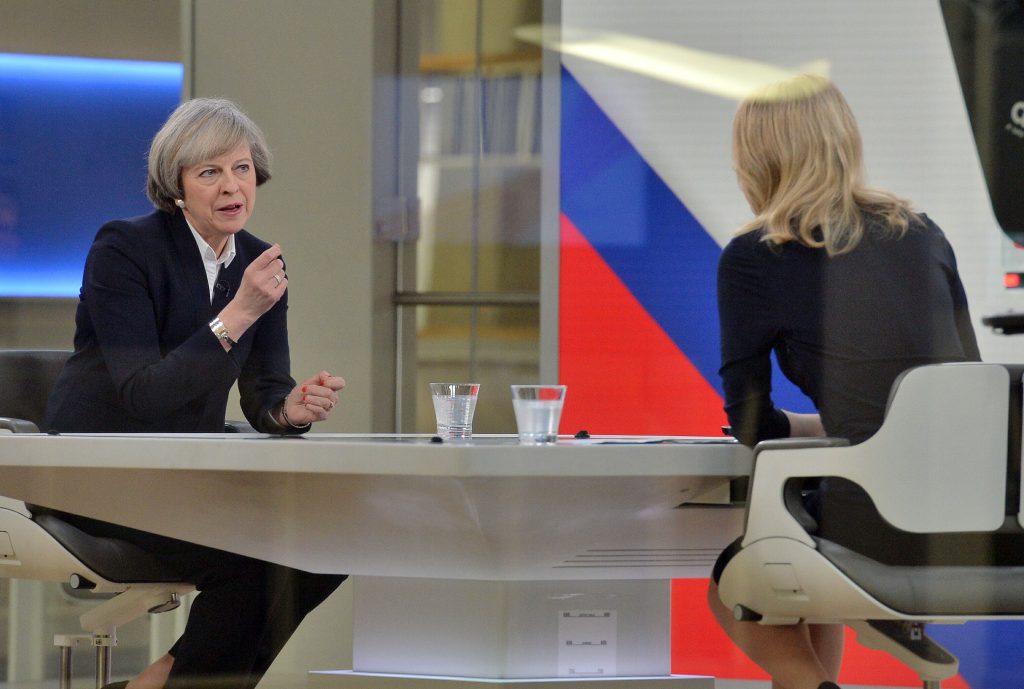
We might find out a bit more about what ‘Brexit’ looks like quite soon. Here’s what we know so far
It’s been seven months since the UK voted to leave the European Union. Seven months is as long as it takes to go on a round trip to Mars, incidentally.
Granted, in that time we’ve had our fair share of mud slinging, blame throwing and a temporary obsession with the cost of the PM’s trousers, but as we get ever closer to the date that the UK is supposed to start leaving no one seems any clearer on what that actually means.

You can imagine everyone’s relief this weekend then when UK PM Theresa May started dropping hints that could finally shed some light on what Brexit actually means. Here’s a recap of the bits of information we have had in the past seven months, and what we should be looking out for in the next few weeks.
I can see clearly now the rain has gone... Can't I?
It's all in the timing: After becoming Prime Minister, Theresa May said pretty strongly that she would trigger Article 50, the process of unpicking all the complicated treaties that tie the UK to the rest of the EU, by the end of March 2017. Depending on how long this all takes, the UK should have left the EU by the end of the summer 2019 - the problem is, Article 50 was only written in to the Treaty of Lisbon in 2009, it has never been used, and no one knows for sure how it will all work.

Who decides? One of the big stories of this whole process has been a Supreme Court battle about who has the right to make decisions about negotiations, when they finally do happen.
Some people think that the Referendum was a democratic enough process to give the government the power to negotiate on behalf of the population. Others say that MPs should still have the right to debate the government’s decisions, and represent their constituents on a point-by-point basis. The Supreme Court is currently pouring over UK parliamentary law to try and work it all out. If you think this is tedious and complicated, we’ve barely even started.
What does the rest of Europe think? Sometimes it’s easy to forget in all this that there are other countries round the negotiating table. They’ve made it pretty clear the UK will not be given an easy ride, and the thing that seems most obvious is that the UK will not be able to pick and choose what it wants to keep. Everyone seems most concerned about membership of the single market, which lets it trade easily with its European neighbours, but it looks like this will be dependent on allowing Europeans to come in and out of the UK easily, which Theresa May seems certain she no longer wants.
And what about the rest of the UK? What will happen to relationships between UK countries? Scotland didn’t vote to leave the EU. Nicola Sturgeon, Scotland’s first minister, has said that there will be no second Scottish Independence Referendum if we have a “soft Brexit”, which basically means keeping trading relations, and freedom of movement. But, as it looks increasingly likely that this egg we call Brexit will be hard, not soft, is the future of the UK at risk too?
Then there's the question of Northern Ireland, which has the UK’s only land border with the Republic of Ireland, which is still very much a member of the EU. The ability of people and goods to cross that border without showing a passport is really important for the relationship between the two countries, and for the people and businesses that use it.
It's complicated, but thankfully the people in the know seem to have a good hold on what Brexit actually means
(It means breakfast, in case you were wondering.)
.@johnmcdonnellMP hates a "chaotic breakfast" - becoming the latest politician to mix up #Brexit and a morning meal https://t.co/eMRIujBneb
— Alain Tolhurst (@Alain_Tolhurst) October 27, 2016
But how clear was Theresa May?
In her interview with Sky News on Sunday, Theresa May let a few small clues out of the hat. How clear was she? Do we really know any more? In the interests of understandable economics, let’s have a look at how she did.
Was she clear about what she meant? She spoke clearly, and used good old plain English, so she gets marks for that. But the clever old politician’s trick of avoiding questions was pretty obvious. The journalist, Sophy Ridge, asked Theresa May if control over immigration would be more important than access to the single market three times, and as far as we could tell, she never got a straight answer.
How well did she address everyone’s needs? She talked about the best deal for Britain, but how well does that represent everyone in Britain? The best deal for people working in the City is probably not the best deal for a single mother in Wales, for example. What is clear though is that she is taking what some voters are saying about immigration very seriously in her negotiations.
Did she say it loud enough for people to hear? Since becoming prime minister Theresa May has kept pretty quiet about her plans. If you wanted to know any detail about what she thought, you would have had to sit through hours of tedious Prime Minister’s questions – we wouldn't want to wish that on anyone, and you still probably wouldn’t have been any the wiser. Even if what she said was still a bit woolly, the fact she was saying it in a more accessible format has to get some points.
I'm only going to ask you one more time. What's actually happened?
It's pretty easy to forget in all this that UK is still a member of the EU, negotiations haven't even started, so we still have all that fun to come. But in a few areas, we have started to see some effects. On a purely financial basis, for a start, we keep hearing about the value of the pound falling, which means people in the UK will lose money if they travel, and means that it is harder and more expensive for UK businesses to buy products from overseas.
And what about the estimated 2.8 million EU citizens living in the UK? Immigration lawyers are advising EU citizens to begin the process of applying for permanent residence in the UK. It's hard to tell for sure how many people have applied already, but towards the end of June the number of people searching for "permanent residence card" on Google doubled. According to the think tank Migration Observatory, it will take 140 years for the Home Office to process the applications if every on of those 2.8 million choose to apply. Better get cracking then.
2017's going to be a pretty important year for Brexit. So here's hoping things start to get a little clearer.



